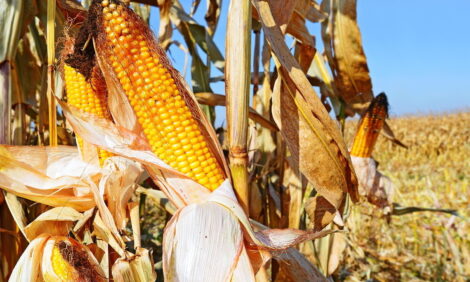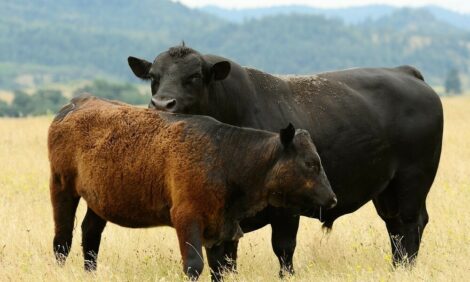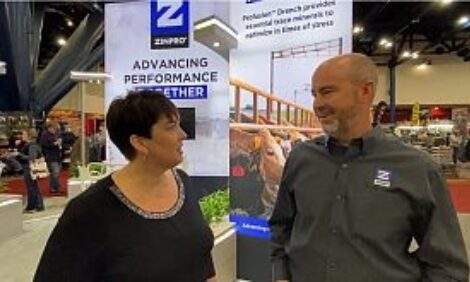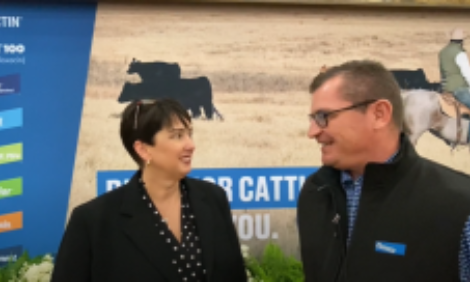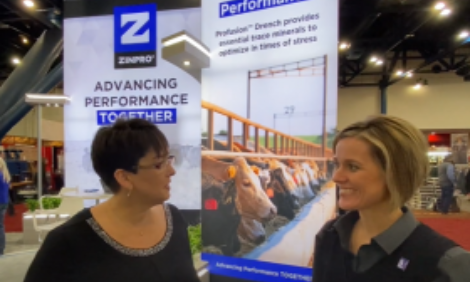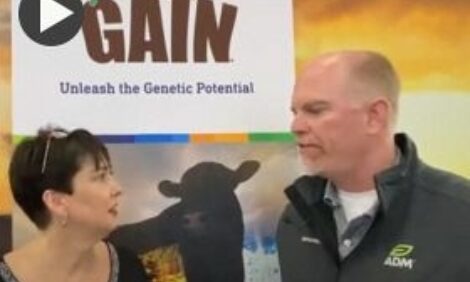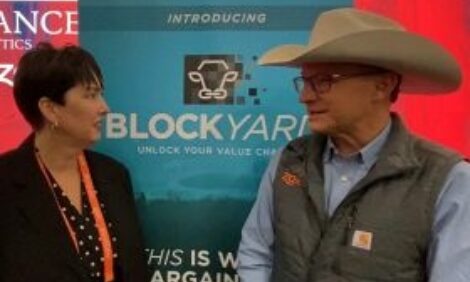



2022 NCBA: CoBank's Brian Earnest offers US cattle outlook
Brian Earnest, protein analyst with CoBank, sat down with The Cattle Site's Sarah Mikesell at the National Cattleman's Beef Association (NCBA) annual conference in Houston, Texas, USA, last week to talk outlook, exports and packing plants.Part of Series:
< Previous Article in Series Next Article in Series >
Brian Earnest, protein analyst with CoBank, sat down with The Cattle Site's Sarah Mikesell at the National Cattleman's Beef Association (NCBA) annual conference in Houston, Texas, USA, last week to talk outlook, exports and packing plants.
What's the outlook for the US cattle industry?
We're generally positive in terms of the US cattle outlook. There’s a lot of optimism right now about the consumer and the opportunity that they present for beef. They've done quite well with it, in terms of what we're seeing from a market response leading into 2022. There's a little bit of concern about higher grain prices and how that's going to impact the market.
As we transition into the marketing year, we'll have stronger meat prices which will determine some of our consumption that has grown last year. But overall, when you look at clearance, it's been relatively positive. Looking at the export market, there's quite a bit of optimism with additional opportunity that's come into play in the last few years.
China helping to support the US beef market?
When you think about specific markets, China has been one of those that US beef hasn't necessarily had strong interest in before. However, in the last year and a half, we've seen that export opportunity really grow. It looks like it's going to hold on, but that cannot necessarily be said for all the proteins that The US focuses on.
The poultry industry regained access to China's markets in the last year and a half as a part of the Phase One Trade Agreement. Pork has kind of trailed off a little bit in terms of the export opportunity, but a lot of that was tied to African swine fever and the rapid decline in China's pig herd. China’s swine population has rebounded significantly. Looking at the most recent numbers, they showed about an 18% rebound in China's swine population last year. Overall, in terms of the opportunity from protein into China, it looks relatively robust.
Other opportunities - Japan is still a major export destination for US beef. Korea has grown in terms of an opportunity, but also Latin America has kind of popped up as a good key export destination for the US in the last few years.
What’s driving the opportunity in Latin America?
The travel industry had some difficulty in 2020. But it's rebounded there and that appears to be part of the driver that's providing the opportunity for US beef.
The rising middle class plays a part, but you're also seeing diversification in terms of export opportunity. It has become more of a key destination, and proximity has something to do with it as well. Pork and poultry have long been a key destination for exports to Mexico, and they've been a good partner overall for the other side of the business. So, that does bode well looking forward.
Circling back to the US market, do you feel like profitability is going to continue for producers?
It's been a difficult 24 months thinking about the producer aspect, but the processing sector has also seen some strong challenges related to COVID-19 and plant fires. Cybersecurity issues also popped up last year, so there have been challenges in terms of working through the peak of the cattle supply situation.
Moving into 2022 and throughout the year, it does look like we're set for a shrinking cattle supply in the US. Processors appear to be caught up and are relatively current with what's in the feedlot. Overall, there's still some optimism in terms of the returns that cattle feeders are going to see in 2020. Some of the dollars being spent at the retail space should start to transition back into the cattle market, primarily when we get into the grilling season, so we’ll see another shift in demand at that time.
The Biden administration has announced it will offer funds to help build small to medium size packing plants. How might that impact the market?
If you look at the long-term trend over the last 20 years, we've seen the packer community actually shrink. There's an opportunity right now, given the processing constraints, to add back some of that capacity. Over the next few years, I mentioned we're going to see a decrease in the cattle supply, and that coincides with the need for additional processing capacity. Looking at the Saturday kills, it's been evident that we are pressuring what these processing plants can push through. There's actually some strong profitability in the packing community which has the opportunity to bode well for the industry.
Traditionally - about 30 to 40 years ago - there were a lot of niche processors or smaller packers. If you look at social media, it does show that there's an attraction from the consumer to go back to some of these niche processors, so this does look like an opportunity. There are different marketing channels that are being utilized now like direct ship to home of some beef with its own marketing behind it or its own characteristics that consumers look or gravitate toward, like a branded program will do well in that sort of environment.
To read more from CoBank and Earnest, click here.


